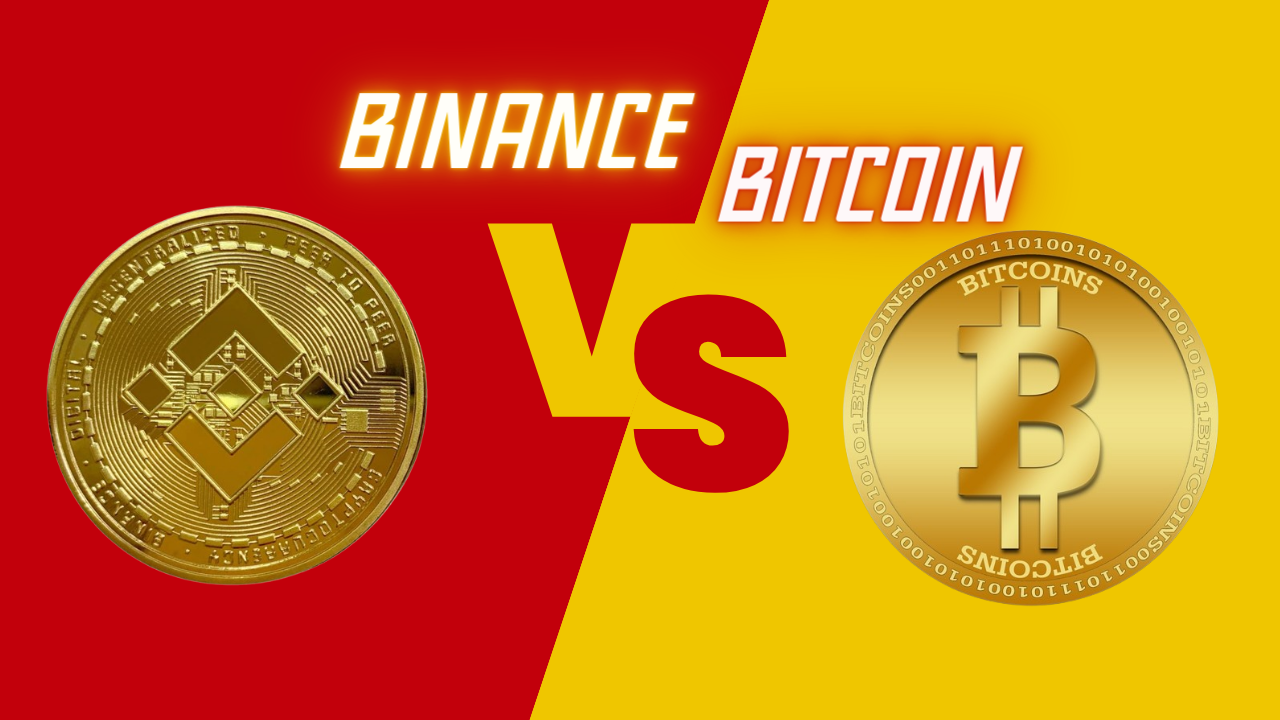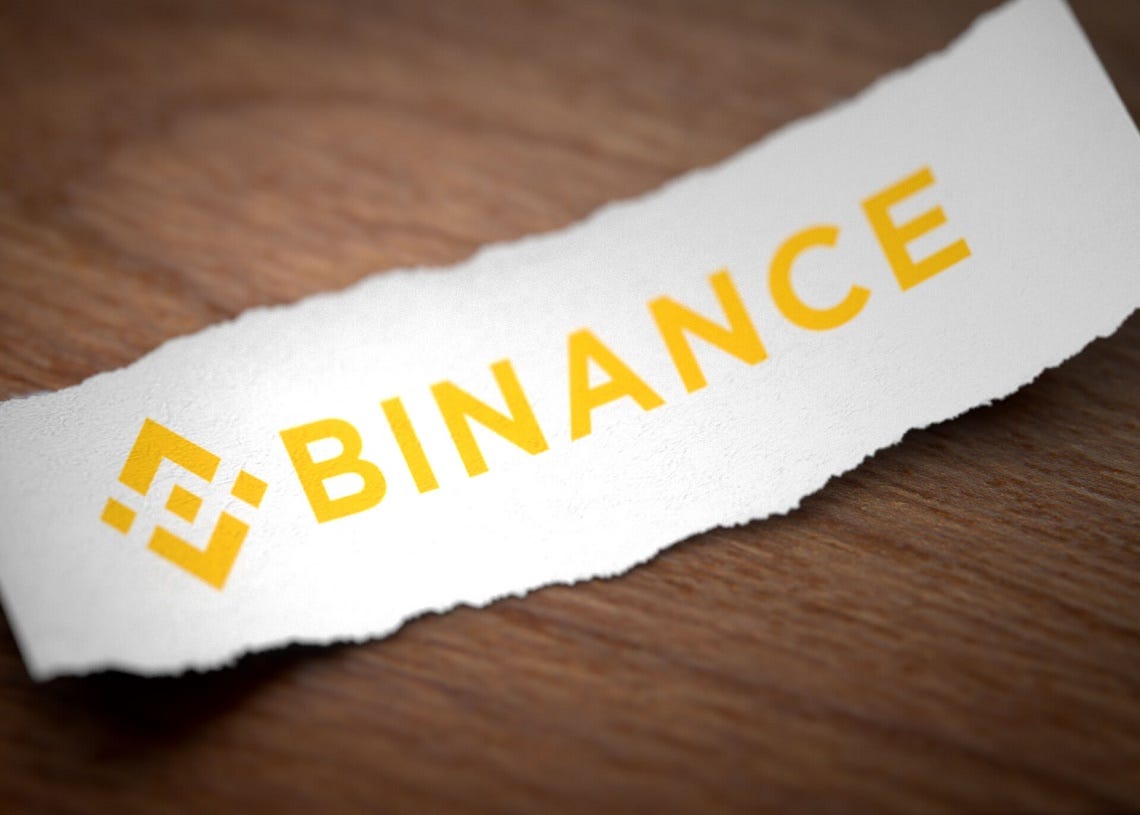Binance Coin (BNB) vs. Bitcoin: Exchange Tokens Explained
- 1 Understanding Bitcoin
- 1.1 Origin and History of Bitcoin
- 1.2 Characteristics and Properties of Bitcoin
- 1.3 Role of Bitcoin as Digital Gold and Store of Value
- 1.4 Bitcoin’s Impact on the Financial World
- 2 Introduction to Binance Coin (BNB)
- 2.1 Background and Creation of Binance Coin
- 2.2 The Role of BNB Within the Binance Ecosystem
- 2.3 Use Cases and Utility of BNB Tokens
- 3 Critical Differences Between BNB and Bitcoin
- 3.1 Technical Differences
- 3.2 Supply Dynamics and Inflation Models
- 3.3 Use Cases and Utility
- 3.4 Regulatory Implications and Challenges
- 4 Trading and Investment Considerations
- 4.1 Volatility and Price Trends
- 4.2 Factors Influencing the Price
- 4.3 Investment Strategies
- 4.4 Risk Assessment and Diversification
- 5 Evolving Landscape: BNB and Bitcoin
- 5.1 Recent Developments in the BNB Ecosystem
- 5.2 Bitcoin’s Journey Towards Mainstream Adoption
- 5.3 Market Sentiment and Long-Term Prospects
- 6 Conclusion
- 6.1 FAQs:
- 6.1.1 What is the origin of Bitcoin?
- 6.1.2 How does Bitcoin operate?
- 6.1.3 What is Binance Coin’s (BNB) role within the Binance ecosystem?
- 6.1.4 How does BNB differ from Bitcoin in terms of supply dynamics?
- 6.1.5 What factors influence the prices of Bitcoin and BNB?
- 6.1.6 What are common investment strategies for Bitcoin and BNB?
- 6.1.7 How can investors mitigate risk when investing in cryptocurrencies?
In Short:
- Bitcoin: Originating in 2008, Bitcoin operates on a decentralized blockchain, renowned for its scarcity and role as “digital gold,” appealing to investors seeking a store of value amidst economic uncertainty.
- Binance Coin (BNB): Introduced in 2017 by Binance, BNB serves various purposes within the Binance ecosystem, offering utility beyond the platform as a widely accepted cryptocurrency in industries like travel and entertainment.
- Differences: While Bitcoin focuses on being a digital store of value and medium of exchange, BNB’s value is driven by its utility within the Binance ecosystem, highlighting the diverse use cases and characteristics within the crypto market.
Cryptocurrencies have revolutionized finance by offering innovative means to transfer value and invest. Bitcoin and Binance Coin (BNB) stand out among many cryptocurrencies available today. In this article, we will explore the intricacies of these digital assets, including their origins, versatile applications, and crucial role in cryptocurrency. You can find valuable resources on investment education at https://quantum-fbc.org/.
Understanding Bitcoin
Origin and History of Bitcoin
Bitcoin, often referred to as the pioneer of cryptocurrencies, was introduced in 2008 by an anonymous entity known as Satoshi Nakamoto. Its release as open-source software in 2009 marked the beginning of a decentralized digital currency era.
Characteristics and Properties of Bitcoin
Bitcoin operates on a blockchain, a decentralized ledger technology, which ensures transparency and security. It is known for its scarcity, with a maximum supply of 21 million coins, making it a deflationary asset. Transactions are verified through mining, which involves solving complex mathematical puzzles.
Role of Bitcoin as Digital Gold and Store of Value
Bitcoin has gained notoriety as “digital gold” due to its store-of-value properties. Investors view it as a hedge against inflation and economic instability, similar to how people historically invested in gold during uncertain times. Its price has seen significant fluctuations, with periods of rapid appreciation.
Bitcoin’s Impact on the Financial World
Bitcoin has disrupted traditional finance by challenging the role of central banks and conventional financial institutions. Its decentralized nature has attracted individual investors and institutional players, with companies like Tesla and Square allocating substantial portions of their treasuries to Bitcoin.
Introduction to Binance Coin (BNB)
Background and Creation of Binance Coin
Binance Coin (BNB) was introduced in 2017 by Binance, one of the world’s largest cryptocurrency exchanges. Initially launched as an ERC-20 token on the Ethereum blockchain, BNB has since evolved into a native Binance Smart Chain (BSC) asset.
The Role of BNB Within the Binance Ecosystem
BNB serves various purposes within the Binance ecosystem. It can be used to pay for trading fees, participate in token sales on the Binance Launchpad, and unlock multiple features on the Binance platform, such as staking and DeFi products.
Use Cases and Utility of BNB Tokens
BNB’s utility extends beyond the Binance platform. It is widely accepted across various industries, including travel, entertainment, and e-commerce. The Binance Smart Chain has facilitated the growth of decentralized applications (dApps) and DeFi projects that rely on BNB.
Critical Differences Between BNB and Bitcoin
Technical Differences
Bitcoin and Binance Coin operate on distinct blockchain technologies. Bitcoin uses a proof-of-work (PoW) consensus mechanism, while Binance Coin primarily relies on a proof-of-stake (PoS) system within the Binance Smart Chain.
Supply Dynamics and Inflation Models
Bitcoin’s supply is capped at 21 million coins, creating scarcity and a deflationary environment. In contrast, BNB’s supply is dynamic, with periodic burns by Binance, reducing the total supply and potentially impacting its inflation rate.
Use Cases and Utility
Bitcoin’s primary function is a digital store of value and a medium of exchange. BNB, on the other hand, has a more versatile utility, serving as a means to access various services within the Binance ecosystem and participating in the broader crypto economy.
Regulatory Implications and Challenges
Bitcoin and Binance Coin face regulatory challenges, with governments worldwide adopting varying approaches. Bitcoin’s decentralized nature makes it challenging to regulate, while BNB’s ties to a centralized exchange can subject it to regulatory scrutiny.
Trading and Investment Considerations
Volatility and Price Trends
Both BNB and Bitcoin exhibit volatility in their price movements. Investors should be prepared for significant price fluctuations and consider their risk tolerance when investing in these assets.
Factors Influencing the Price
Several factors influence the prices of BNB and Bitcoin, including market sentiment, adoption rates, technological advancements, and macroeconomic factors like inflation and interest rates.
Investment Strategies
Investors must choose strategies that align with their goals. Bitcoin’s store-of-value characteristics make it attractive for long-term holders, while BNB’s utility-driven value may appeal to traders and users of the Binance ecosystem.
Risk Assessment and Diversification
Diversifying a cryptocurrency portfolio is essential to mitigate risk. Investors should not put all their funds into a single asset and consider a mix of cryptocurrencies, including Bitcoin and BNB.
Evolving Landscape: BNB and Bitcoin
Recent Developments in the BNB Ecosystem
The Binance ecosystem continually evolves, with the Binance Smart Chain gaining popularity among developers and users. Projects like DeFi platforms, decentralized exchanges, and NFT marketplaces thrive on BSC.
Bitcoin’s Journey Towards Mainstream Adoption
Bitcoin’s path to mainstream adoption includes acceptance by institutional investors, regulatory clarity, and improved scalability. Efforts are underway to make Bitcoin more accessible and user-friendly.
Market Sentiment and Long-Term Prospects
Market sentiment plays a crucial role in the price movements of both BNB and Bitcoin. Long-term prospects depend on adoption, technological advancements, and regulatory developments.
Conclusion
In summary, Bitcoin and Binance Coin are distinct cryptocurrencies with varying use cases and characteristics. Bitcoin’s role as a digital store of value and Binance Coin’s utility within the Binance ecosystem showcase the diversity within the crypto market. As you consider investing in these assets or participating in the crypto space, it’s essential to understand their differences and align your strategy with your financial goals and risk tolerance. The evolving landscape of cryptocurrencies continues to offer opportunities and challenges, making it an exciting space to explore and navigate.
FAQs:
What is the origin of Bitcoin?
Bitcoin was introduced in 2008 by an anonymous entity known as Satoshi Nakamoto and released as open-source software in 2009.
How does Bitcoin operate?
Bitcoin operates on a decentralized blockchain, utilizing a proof-of-work consensus mechanism to validate transactions and maintain the network.
What is Binance Coin’s (BNB) role within the Binance ecosystem?
BNB serves multiple purposes within the Binance ecosystem, including paying for trading fees, participating in token sales, and unlocking various features on the platform.
How does BNB differ from Bitcoin in terms of supply dynamics?
Bitcoin has a capped supply of 21 million coins, creating scarcity, while BNB’s supply is dynamic, with periodic burns by Binance affecting its total supply.
What factors influence the prices of Bitcoin and BNB?
Prices of Bitcoin and BNB are influenced by factors such as market sentiment, adoption rates, technological advancements, and macroeconomic factors like inflation.
What are common investment strategies for Bitcoin and BNB?
Bitcoin’s store-of-value characteristics make it attractive for long-term holding, while BNB’s utility-driven value may appeal to traders and users of the Binance ecosystem.
How can investors mitigate risk when investing in cryptocurrencies?
Diversifying a cryptocurrency portfolio is essential to mitigate risk. Investors should consider a mix of cryptocurrencies, including Bitcoin and BNB, and not allocate all funds to a single asset.



















